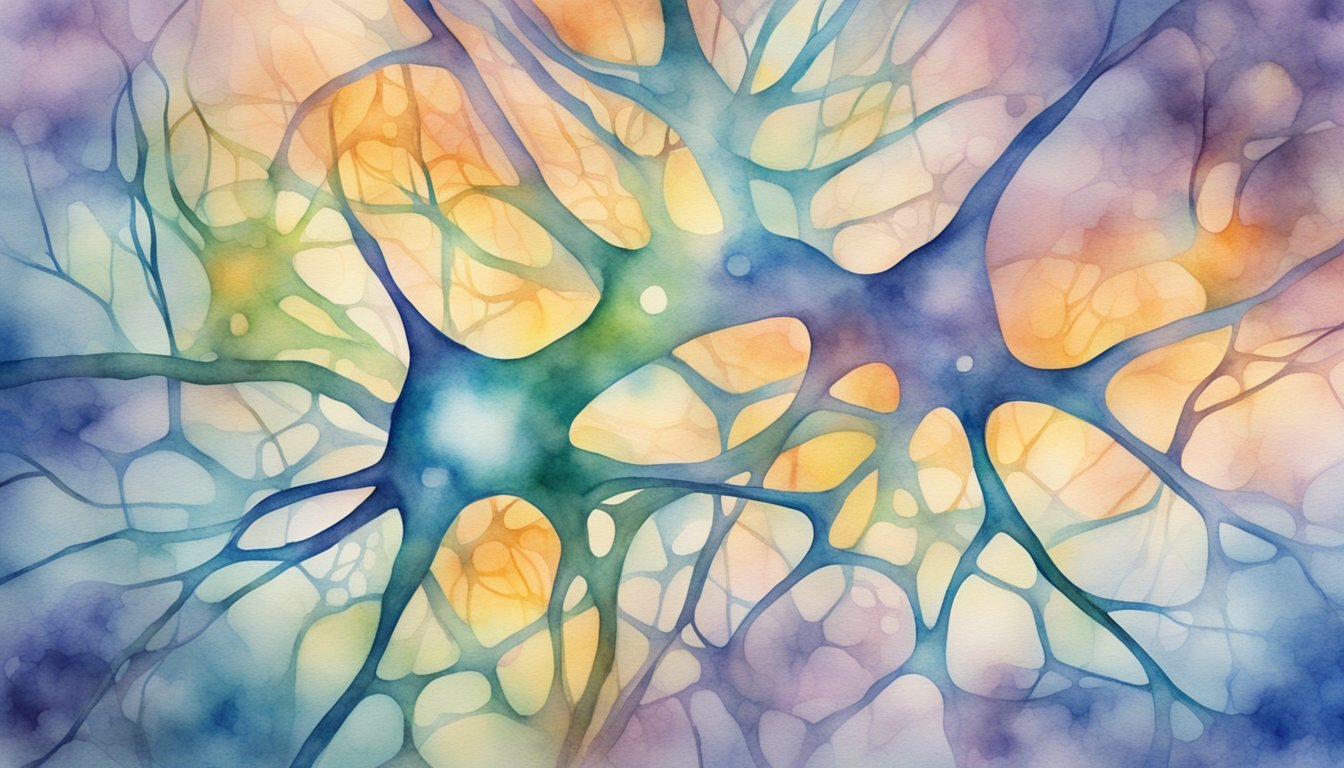Fundamentals of Neurobiology
In exploring the intricate field of neurobiology, readers will gain insight into how neurons form the building blocks of the nervous system, how these cells connect into vast networks to handle complex tasks, and the dynamic changes that occur in the brain throughout life.
Cellular and Molecular Basis of Neurons
Neurons, the primary cells of the nervous system, are highly specialized for communication. With a combination of electrical and chemical signals, they pass information rapidly and precisely. Each neuron consists of a cell body, dendrites that receive signals, and an axon that sends messages. At a molecular level, neurons operate through a balance of ions and neurotransmitters, substances like glutamate and GABA which relay, amplify, and modulate signals between cells. Discover more about neurons’ molecular foundations on eBay.
Neural Circuits and Systems
The nervous system is organized into complex circuits that are specialized for different functions like sensory perception, motor coordination, and cognitive processes. These circuits are formed by various types of neurons interconnected to form pathways. For instance, the cerebral cortex is responsible for high-level functions such as thought, language, and consciousness. Underlying these capabilities is a vast network of synaptic connections, mapping out the elaborate architecture of neural systems. Learn about the cerebral cortex and neural systems from Harvard Online.
Brain Development and Neural Plasticity
Neuroplasticity is the brain’s ability to adapt and reorganize itself, a fundamental feature that continues throughout an individual’s life. This plasticity allows for the learning of new languages, the recovery from brain injuries, and adaptation to new experiences. Brain development is also a highly dynamic process influenced by both genes and environment, with critical periods where the presence or absence of certain experiences can have a long-lasting impact on brain structure and function. Explore the complexities of neural plasticity through Harvard’s course series.
Cognitive Functions and Disorders

Understanding cognitive functions and their disorders involves exploring the intricate relationships between neural circuits, synaptic activity, and their impact on emotion, memory, and behavior. This examination provides insights into various health conditions affecting the nervous system.
Neurobiology of Emotion and Memory
The intricacies of emotion and memory are grounded in the complex interplay of neural circuits involving both nerve cells and glial cells. Emotion is deeply intertwined with memory; it’s thought that rich emotional experiences can enhance the storage and recall of memory. Studies suggest that the amygdala, a brain region associated with processing emotions, also plays a part in forming emotionally charged memories. Disturbances in these processes can manifest in disorders where individuals may experience intense emotional memories or forgetfulness.
Learning, Attention, and Cognition
Attention and cognition are critical in the process of learning. They involve the brain’s ability to process signals, including vision and sensation, to allow living animals to interact with their environment adaptively. Scientists pinpoint functional regions in the brain that specialize in controlling these cognitive functions. For instance, the prefrontal cortex is significant in managing attention and executive functions. Dysfunctions in these areas can lead to attention disorders and learning disabilities, emphasizing the role of education in fields like medical school to foster a deeper understanding of these conditions.
Diseases of the Nervous System
The nervous system is susceptible to a range of diseases, such as stroke, which can disrupt the bioelectricity and circuitry crucial for cognitive functions. Disorders of the nervous system can have profound effects on emotion, behavior, and cognition. The synergy between various scientific disciplines such as physics, computer science, and medicine has been instrumental in advancing treatments for these conditions. Gaining a comprehensive grasp of nerve cell dynamics and the support provided by glial cells can facilitate the development of novel medical interventions for nervous system diseases.

